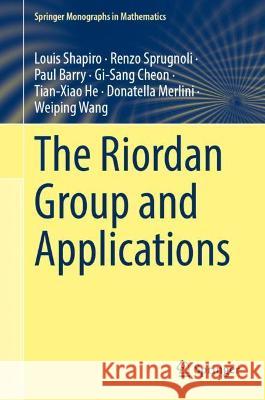The Riordan Group and Applications » książka
topmenu
The Riordan Group and Applications
ISBN-13: 9783030941505 / Angielski / Twarda / 2022
The Riordan Group and Applications
ISBN-13: 9783030941505 / Angielski / Twarda / 2022
cena 523,30
(netto: 498,38 VAT: 5%)
Najniższa cena z 30 dni: 501,19
(netto: 498,38 VAT: 5%)
Najniższa cena z 30 dni: 501,19
Termin realizacji zamówienia:
ok. 16-18 dni roboczych.
ok. 16-18 dni roboczych.
Darmowa dostawa!
The ever-growing applications and richness of approaches to the Riordan group is captured in this comprehensive monograph, authored by those who are among the founders and foremost world experts in this field. The concept of a Riordan array has played a unifying role in enumerative combinatorics over the last three decades. The Riordan arrays and Riordan group is a new growth point in mathematics that is both being influenced by, and continuing its contributions to, other fields such as Lie groups, elliptic curves, orthogonal polynomials, spline functions, networks, sequences and series, Beal conjecture, Riemann hypothesis, to name several. In recent years the Riordan group has made links to quantum field theory and has become a useful tool for computer science and computational chemistry. We can look forward to discovering further applications to unexpected areas of research. Providing a baseline and springboard to further developments and study, this book may also serve as a text for anyone interested in discrete mathematics, including combinatorics, number theory, matrix theory, graph theory, and algebra.











